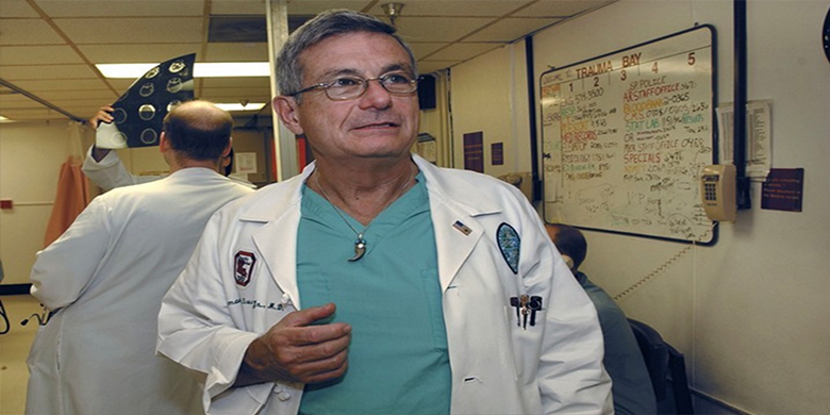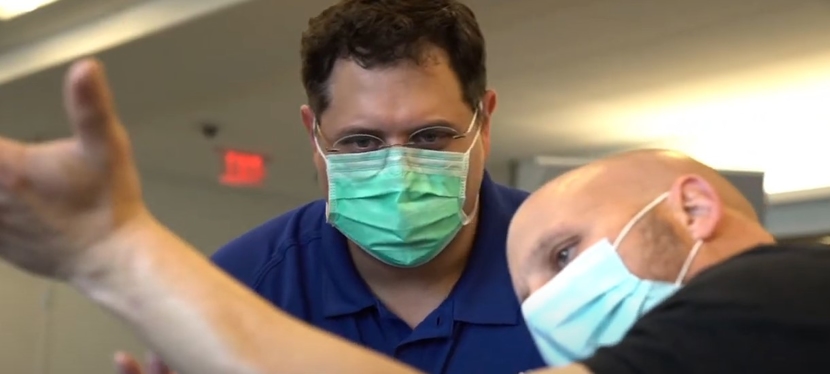Tis the season to remember fire safety
- Category: Living Well, Burn Center
- Posted On:
- Written By: Jeffrey Carter, MD

As we dive deeper into the holiday season, it is important that we add fire safety to our to-do list. Many of us will be spending the next few days decorating our homes, cooking large meals, entertaining family, hosting holiday parties, and enjoying some quality time on the sofa wrapped in our favorite blanket. As we are going through all these activities, it's important to realize the possible dangers of fires and getting burned.
Decorations
Decorations during the holiday season are festive and fun. Glitter and garland can get anyone in the holiday spirit. The National Fire Protection Association reported that between 2013 and 2017 there were 160 home fires that fire departments responded to that started with Christmas trees per year. If you are using a real tree, consider getting a fresh tree. The dryer the tree the more it is likely to be a fire hazard. Have a continuous source of water and make sure that your tree is in place and not able to fall over. Your tree should not be placed near sources of heat such as candles, fireplaces, heaters, and even your tv. Place your tree at least 3 feet away from these sources of heat. Make sure your artificial tree is flame resistant.
Never leave the lights on your tree overnight and the same goes on for any other rights you may have around your house. Make sure you don’t have more than three strings of lights on an extension cord. Make sure your cords are visible, out the way to prevent tripping, and aren’t under carpets or rugs. Improper electrical distribution can cause a fire.
Candles
Lighting those candles you got at the recent candle sale is perfect to get you in the holiday mood with the smell of winter candy apple filling up the room, but your candle can also start a fire. Make sure that your lit candles are not near things that can burn such as furniture, bedding, curtains, and decorations. Remember to not let your candles burn all the way down, leave a candle unattended, and use a candle as a night light or in a situation where you could fall asleep while it is lit. Keep candles out of reach from children and pets. Make sure your candles are fully out when you extinguish them.
Cooking
As you are cooking make sure you are using oven mitts and pot holders to prevent burning your hands and any other areas of your body when moving hot pots and pans around your kitchen. Although timers are useful make sure you are always monitoring your food to prevent burning food. Watch your food cooking and don’t fall asleep. If you burn the baked mac n cheese, your family may not be happy with you this year. Make sure you aren’t leaving towels or any other materials on your stove that can catch on fire.
If do so happen to start a fire in your kitchen remember these tips:
- If you have a fire in your oven or microwave, suffocate the flames with the lack of oxygen by closing the door and turning off the oven and the fire department if the fire continues.
- If you have a fire in a cooking pan, move it off the burner, put a lid on it, and turn your stove off.
- Know where your fire extinguisher is and remember to aim at the base of the fire.
- Never use water to put out a grease fire. Use baking soda or a fire extinguisher.
- If the fire is too larger to control, get everyone safely out of the house and then call 911.
Fireworks
Every year approximately 10,000 people suffer from firework injuries. Sparklers can cause third-degree burns. Make sure fireworks are being handled by adults, people are out of the way before lighting, are nowhere near your face or body, and that you keep a bucket of water or a fire extinguisher nearby.
Enjoy the holiday season, but make sure you keep yourself and your family safe as well. Teach your children the importance of fire safety, make sure your family knows where the fire extinguisher is, and practice fire drills at your house. If you experience an emergency, please remember to call 911 and visit the emergency room for smoke inhalation or any burns.

Jeffrey Carter is the Medical Director of the University Medical Center New Orleans Burn Center. Dr. Carter earned his medical degree from East Tennessee State University in 2005 with honors and practiced general surgery and surgical critical care before specializing in burn treatment. He completed his burn/trauma fellowship at the University of North Carolina, Chapel Hill, and is board-certified by the American Board of Surgery in Surgery and Surgical Critical Care.


